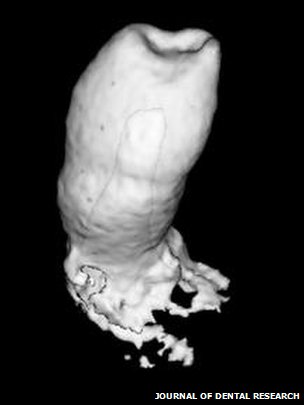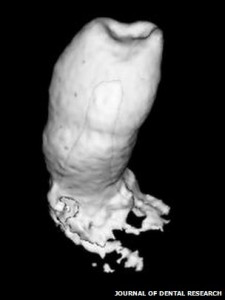Imagine replacing a missing tooth, not with an implant or a bridge, but with a bioengineered one created from your gum cells. Sound like science fiction? Well it’s not.
Researchers at the King’s College London, UK, in the Dental Institute have just published new findings in the current issue of Journal of Dental Research describing their experiments with mice to isolate adult human gum tissue cells and combine them with mesenchyme mouse cells, the cells in mammals that form teeth. The scientists once they had cultured a sufficient number of the cells then implanted them into a mouse jaw. The result, hybrid human-mouse bioengineered teeth containing dentine and enamel.
Professor Paul Sharpe, who led the team, stated, “‘Epithelial cells derived from adult human gum tissue are capable of responding to tooth inducing signals from embryonic tooth mesenchyme in an appropriate way to contribute to tooth crown and root formation and give rise to relevant differentiated cell types, following in vitro culture. These easily accessible epithelial cells are thus a realistic source for consideration in human biotooth formation. The next major challenge is to identify a way to culture adult human mesenchymal cells to be tooth-inducing, as at the moment we can only make embryonic mesenchymal cells do this.”










